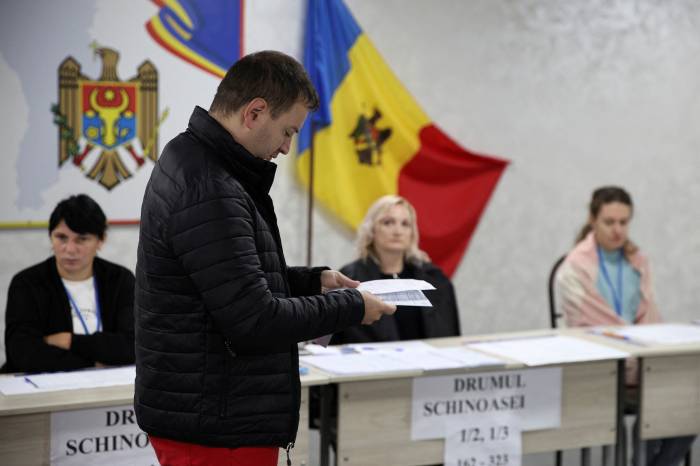In a time of heightened public discontent in Moldova, the upcoming elections have turned into a fierce debate on economic direction, national identity, and political alliances.
Alexander Nesterovsky, Member of the Moldovan Parliament from the Revival Party, Victory Bloc and vocal critic of the current administration, shared his insights with News.Az on the challenges facing President Maia Sandu’s leadership, the societal impact of recent economic decisions, and the significance of opposition unity in the fight for Moldova’s future.
– Many analysts who support Sandu’s policies predicted her victory in the first round. In your view, why did this forecast not come true?
– Predictions about Maia Sandu’s potential first-round victory mostly came from pro-government “experts” and media outlets that support her policies and receive Western funding. Yet, for the majority of Moldovans, it was clear that Sandu had lost public trust due to a series of actions and decisions.
The primary factor is the worsening economic situation, driven by Sandu’s controversial policies and those of the PAS party. For instance, the painful increase in gas prices, which hit citizens’ wallets, led to widespread dissatisfaction not only in Moldova but also in Europe. In this climate, prices for goods and utilities soared, and inflation reached record highs. These economic hardships have disillusioned even her former supporters, who now doubt her ability to tackle such challenges.
– Moldovan society is increasingly voicing dissatisfaction with the current government. What aspects of its policies do you think are causing the greatest discontent among citizens?
– Instead of addressing economic problems, Sandu’s government keeps taking out substantial loans, and the purpose of these funds remains unclear. People see Sandu’s promises as empty words while the country’s situation deteriorates.
Aside from economic issues, Moldovans are uneasy about the European integration drive, which, in their view, comes with the imposition of foreign values. European reforms have led to steps such as promoting LGBTQ ideas, banning symbols of World War II, putting pressure on the Orthodox Church, and shutting down Russian and Russian-language TV channels, which make up a substantial part of the media landscape. These changes are seen as threats to national identity and cultural traditions.
Another important factor is the perceived threat to Moldova’s sovereignty. Under the guise of European integration, Moldovan identity is gradually being erased, with the national language being sidelined and increasing claims that Moldovans are actually Romanians. These issues deeply concern citizens, influencing them to vote against Sandu’s direction.
– Stoianoglo’s popularity has taken him to the second round of the presidential election. In your view, how did he gain such voter support?
– Alexandr Stoianoglo’s entry into the second round is due to several factors. First, a significant portion of the electorate expressed protest against the current government’s policies, being unhappy with the current course. In an economic crisis, people are searching for an alternative to Maia Sandu.
Moreover, the absence of several opposition candidates disappointed some voters. As a well-known figure, Stoianoglo became a sort of compromise candidate for those who didn’t find the name they wanted on the ballot. Although Stoianoglo himself didn’t comment on the exclusion of other opposition members, a considerable share of his votes came not so much in his favor as in opposition to Sandu.
– If opposition forces rally around Stoianoglo, how will this affect his chances of winning?
– Support from the opposition significantly strengthens Stoianoglo’s position. Uniting different political forces around a single candidate standing against Sandu could be decisive. Disappointed voters from the first round may shift their support to Stoianoglo, viewing him as a genuine alternative. Under such circumstances, his chances of winning increase substantially.
– In your opinion, what will be key in the fight for the presidency: high voter turnout, support from other opposition candidates, or the transparency of the vote-counting process?
– The election results will depend on several key factors. Firstly, turnout is crucial, particularly among those who voted against Maia Sandu in the first round. Mobilizing these voters could be decisive. Secondly, support from opposition candidates who were eliminated after the first round could bolster Stoianoglo if they call on their supporters to back him.
Additionally, how the votes are counted will be vital. The recent referendum example, where the results showed a failure (55% against) in the evening but unexpectedly shifted in favor of the referendum’s supporters by half a percent by morning, has raised serious suspicions among citizens. This makes many question the honesty and transparency of the upcoming elections.
